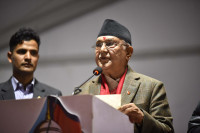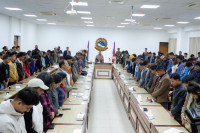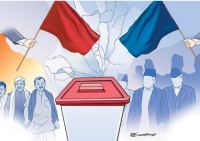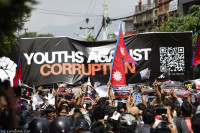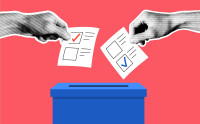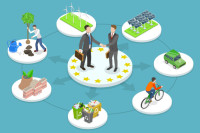Opinion
I heard it on the radio
It is important to reflect on radio’s role in improving and saving people’s lives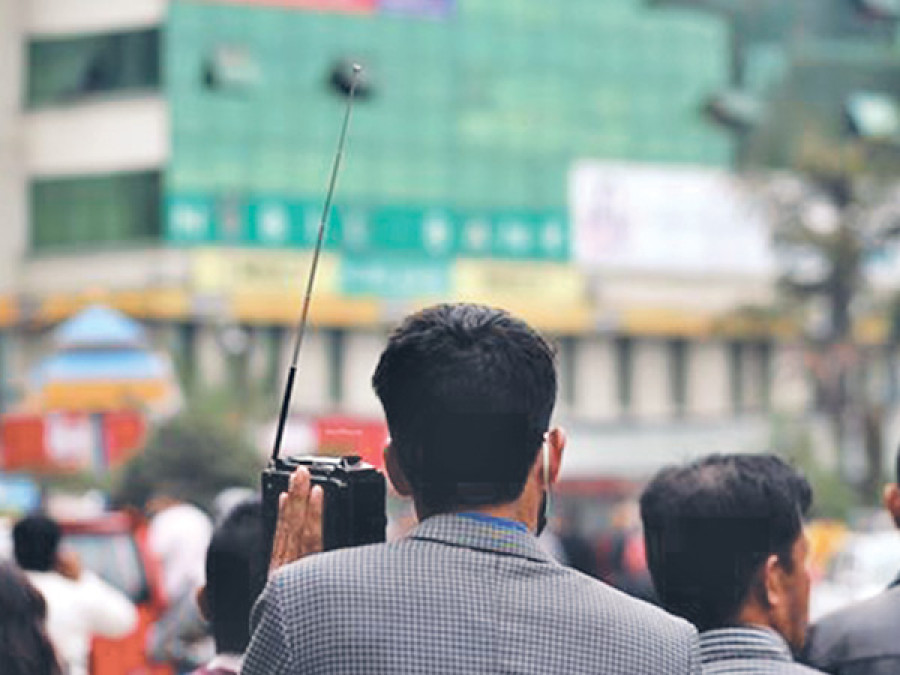
Mona Laczo
“I heard on the radio that the government of Nepal is providing 10,000 Rupees to buy warm clothes for winter in earthquake affected areas. Please tell the government not to give the cash directly to my father as he will spend it on alcohol. Instead the government should send us warm clothes and books,” Listener feedback to BBC Media Action’s Milijuli Nepali.
The other day we received this message from a seven grader from Rasuwa district. He tunes into his radio every day. In this instance he did not just listen to his radio but he also took action. He was cold, he had been through an earthquake, and he, like many others, still needed and wanted information. And he wanted others, including radio programme-makers, to use the information he had. The trust this boy and other listeners place on us as “the communicators” to assist in their accountability is something we have to respond to. So what power does radio have in helping us achieve our quest for information and accountability?
The 19th century discovery of electromagnetism by James Clerk Maxwell and later experiments by Heinrich Rudolf Hertz led to by the beginning of the radio. Since then, though the forms of transmission have evolved, our craving for information and entertainment through radio has continued.
Wide reach
Every day billions of people turn on and listen to their radio. Be it in their cars going to work, in their homes, their communities, or even through mobile phones, The Unesco has estimated that 95 percent of the world’s population receives information through radio. In Nepal, radio reaches around 90 percent of the population.
Given the enduring scale of the appetite for radio programmes, there is more need than ever for radio content and programme-makers. And in times of crisis that need is more critical than ever, as radio’s reach makes it an invaluable source of much-needed information. .
On World Radio Day (February 13), it is important to reflect on the crucial role radio can play in improving and saving people’s lives. And this year we are celebrating the role of radio in the aftermath of crisis, which given Nepal’s vulnerability to natural disaster is highly relevant.
In the immediate aftermath of the earthquake on 25 April 2015, radio stations and their programmes played a key role in providing crucial information to the population across Nepal and abroad. Community, commercial and national stations stopped their regular broadcasts and concentrated their programming on the earthquake, what was happening where, in some cases leading to coordination amongst government agencies as the rescue efforts unfolded.
Our research across multiple humanitarian crises has also shown that psychosocial needs are critical. In Nepal since April’s earthquake, humanitarian broadcasts, most of them over the radio, have played a key role in giving people hope and confidence, whilst sharing knowledge about the changing situation and what to do.
People affected were able to find the help they needed and to connect with others experiencing the same situation. This sense of solidarity supported their mental and physical recovery.
It is well known that the voices of survivors are key to effective recovery and response in crisis. But it is less well known that media broadcasts can facilitate this voice by providing a platform for survivors to hold others to account, share their concerns and stories of recovery and survival. This is crucial in supporting psychosocial outcomes and enabling confidence to act.
As media professionals we need to recognise that, like all forms of humanitarian support, media broadcasts are only truly effective if done in partnership with local people and communities. They are the first responders in crisis, the first to reach the worst affected areas and the first to help. In the case of Nepal, the exceptionally strong network of radio stations were among those first responders after the earthquake broadcasting from the community to the community.
Survivors’ agency
Our research has also noted that survivors of disasters are not passive victims. They want, need and expect accurate, high quality, consistent, timely and trustworthy information. They seem aware that without this, they can become further confused and disillusioned. With information at hand, they can make key decisions to help protect themselves, their families and ultimately be empowered to actively participate in their own recovery.
Humanitarian broadcasts played a key role in assisting immediate recovery during the earthquake in Nepal, helping people to stay safe and to protect themselves and their families. The media, radio in particular, has the potential to connect and empower communities, humanitarians and government officials to work together to help people to prepare and plan for the future.
World Radio Day is about celebrating radio as an important transmitter of information and to encourage commercial, community, and national broadcasters to promote access to information, freedom of expression and gender equality. There is no better time than now to pull together to ensure that radio practitioners can act as agents of transmitters of life-improving and life-saving information. The media especially radio has the potential to connect and empower communities, humanitarians and government officials to work together to help people. So let us get ready with our plans, our back-up systems, our programmes and our collaboration, so that we are able to communicate immediately at the time when information is most needed.
And to our audiences: please power up, get batteries for your portable radios and make sure you tune in during emergencies, as information will be coming your way.
Laczo is the Country Director of BBC Media Action in Nepal




 8.12°C Kathmandu
8.12°C Kathmandu
